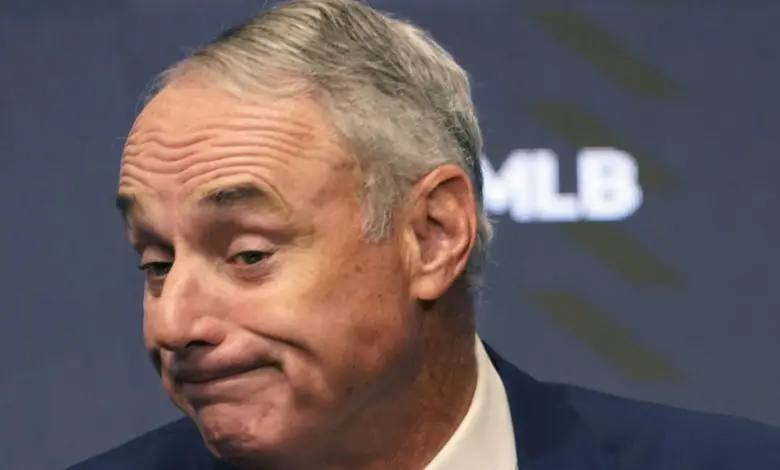
MLB ‘Indicated Willingness to Miss Month of Games’ During Monday’s Session
Major League Baseball set Monday, February 28 as the deadline to reach an agreement before regular-season games have to be canceled, which may have been a more hollow threat than initially believed. Canceling games would also come with a decrease in player salaries, which the union has said would mean no agreement on expanded playoffs. The length of schedule and mechanisms for player pay are also collectively bargained, so unilaterally canceling games would open a whole different can of worms.
Everyone believes this is all about money, which is true to a great extent, but it appears now to be at least as much about power and hubris. To wit, Evan Drellich of The Athletic tweeted Monday afternoon that MLB “indicated a willingness to miss a month of games” during Monday’s discussions. That would mean starting the season in late March or early May, which makes sense on the surface because a bulk of MLB’s broadcast rights fees come at the end of the season.
MLB today indicated a willingness to miss a month of games and took a more threatening tone than yesterday, sources briefed on the day’s first meeting between MLB and the Players Association tell me, @Ken_Rosenthal and @FabianArdaya. Full context of conversation not yet known.
— Evan Drellich (@EvanDrellich) February 28, 2022
Those early games are expendable to the owners, who are becoming ever more transparent in their machinations. However, eliminating even one game means likewise nixing the idea of adding another wild card round to the postseason. That move alone would cost the league $100 million, the amount ESPN agreed to pay for the rights to said round when it re-worked its deal last year.
Players had also offered to allow advertising patches on uniforms and decals on helmets, a revenue stream that could generate $150 million for the league. If you’re keeping score at home, that’s a quarter-billion dollars in additional annual revenue the owners would be spurning for at least one year. Seems like a really bad decision if you believe their repeated claims that operating a team isn’t a lucrative enterprise.
Except that we already know team ownership is very financially beneficial, whether through annual operating income, massive tax breaks, or asset appreciation. The owners aren’t hurting for money and are willing to sacrifice at least a month of the season in order to strongarm the players and maintain the integrity of their inflated egos. This is definitely about more than money for them.
Thing is, that pursuit of vanity could end up eroding the very foundation of the ivory tower they’ve fashioned for themselves. By alienating baseball fans far and wide, the league runs the risk of losing significant interest in the subscriptions and national broadcasts that net them all those billions. Seems like a pretty dumb hill to die on if you ask me.
This situation and the years of labor acrimony preceding it led Jeff Passan to correctly state that “If you MLB teams over to any 30 competent businesspeople, the sport would not suffer.” Replace all the players, however, and the quality of the product would suffer immeasurably.
There’s still a lot of time left in the day to get something done, though the tenor of the negotiations is contentious to say the least and one side remains dug into its positions. Barring a miraculous turnaround, the players may choose to walk away from the table and the owners may press on with their threat to cancel games. Man, this sucks.

